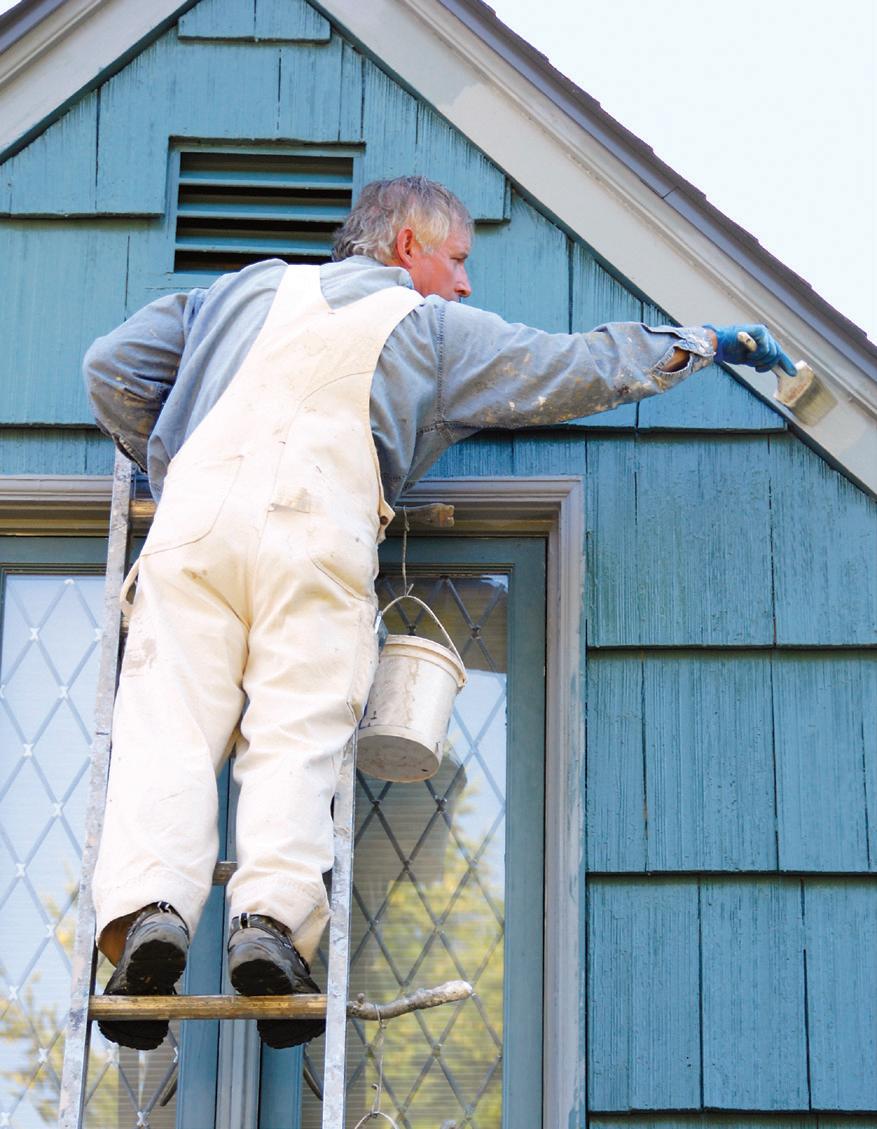
5 minute read
Doubling Down
Fund That Flip’s raises money for even more growth in 2022. BY BOB SANDRICK
Over the past six months, money has been flying at accelerated speeds into and out of Fund That Flip, a lending company specializing in commercial loans for renovations and construction of residential properties.
The company, headquartered in New York City but with a strong presence in Downtown Cleveland, raised about $20 million during a Series B funding round in the fourth quarter of 2021. The money has helped Fund That Flip expand underbuilding new homes at a time when millennials — now the country’s largest generation group — want to buy them. One solution is to fix up old, deteriorating houses. “The data shows there is a shortage of a livable, single-family housing supply, which is driving up pricing,” Rodak says. “Meanwhile, there is a strong demand for housing from millennials, so we are feeling a lot of tail wind in the housing market over the next five to 10 years.”

“The data shows there is a shortage of a livable, singlefamily housing supply, which is driving up pricing. Meanwhile, there is a strong demand for housing from millennials, so we are feeling a lot of tail wind in the housing market over the next five to 10 years.” —Matt Rodak
its geographical territory from about 10 metropolitan statistical areas to 20 MSAs, including those in the Midwest, Mid-Atlantic and Southeast portions of the U.S.
Meanwhile, the firm has created 50 new positions during the past six months alone and now employs about 150 workers. Its goal is to have close to 300 workers by the end of 2022. Also, since June, Fund That Flip has invested an additional $400 million in home renovation and construction projects. That’s a 57% increase in just six months, over the $700 million it had invested during its first six years in business.
With the fast monetary growth, Fund That Flip plans to expand its products and services by, for example, providing data analytics for its staff, investors and borrowers. The data will help them understand what’s happening in local housing markets, such as the average amount of time it takes for a house to sell and the factors that increase or decrease a home’s value.
The data can also help contractors that borrow money from Fund That Flip find houses to renovate, track the money they spend on buying and repairing houses and manage their construction processes.
“The information we can provide is close to unlimited,” says Matt Rodak, founder and CEO of Fund That Flip. “We’re trying to take the data and present it in a way that can help people draw conclusions on where the market is going.”
Fund That Flip is growing so rapidly that Rodak sees a day when the company will go public. Its services are needed, he says, because the U.S. has been Flipping Out
The practice of “flipping houses” has historically suffered from a bad reputation. It’s been associated with buying rundown houses cheap, splashing on a coat of paint and selling them for a profit.
That’s not how Fund That Flip operates. The firm brings prosperous lenders together with reputable contractors to create quality housing in underserved markets; improve entire neighborhoods, especially those that are struggling; and generate jobs for tradespeople.
The investors lend in increments of $1,000 to $5,000, mostly for short durations, typically 12 months. Each investment earns returns of between 8% to 9%. Loans from Fund That Flip to home renovators range from $100,000 to several million dollars, with an average loan amount of $300,000.
Fund That Flip — which so far has focused on short-term loans since houses are purchased, renovated and sold relatively quickly — also hopes to introduce longer term loans of up to 30 years, because some borrowers are holding onto their properties and renting them out

instead of selling them.
Rodak established Fund That Flip in 2015 in New York and soon opened a second office in his native Northeast Ohio. The office here is in Fifth Third Center on Superior Avenue. In 2016, seed funding of just less than $2 million from investors Fintech Ventures Fund in Atlanta and Entrepreneurs Roundtable Accelerator in New York City allowed the startup to expand its sales, marketing and technology functions.
With revenues doubling annually, Fund That Flip in 2019 brought in about $11 million in Series A funding, usually sought for after a business develops a track record of success. The funds, coming from Entrepreneurs Roundtable again plus Edison Partners in Princeton, New Jersey, were used to expand the firm’s geographical territory and invest in technology.
Rodak says accepting such funding means sharing company ownership with investors, but the size and potential of the housing market makes it worthwhile.
“We were one of the few companies on the front end of a largely underserved marketplace,” Rodak says. “Can we increase the size of the pie so that my small piece gets bigger? In our case, it made sense. We gave up some of the company, but everybody gets a bigger piece of a larger pie.”

Competing with Wall Street
An investor called GPO Fund in New York was among those who provided Fund That Flip Series B funding, typically sought when companies are past the development stage. Rodak says the money will help the firm compete with big Wall Street investors that have entered the house-flipping market over the past five years.
“Wall Street investors are just profit-driven and don’t have an interest in communities,” Rodak says. “That’s fine, they’re doing good work, but we believe our way is best for local interests. The people we work with go to church in the neighborhood and coach the baseball team. They have more at stake than just profits.”
Indeed, knowing the community and the local housing market is important, something that was exemplified when Zillow, the online real estate marketplace, started flipping homes. The effort failed, causing Zillow to lay off 25% of its workforce after losing $381 million in three months.
The problem was that Zillow relied on algorithms to determine the value and cost of homes without sending anyone to inspect them. It might have worked if the market had stayed stable and predictable, but home prices rose quickly during the COVID-19 pandemic, something Zillow admitted it was unable to predict.
In addition to market knowledge and high market demand, Rodak attributes the success of Fund That Flip to his professional team. He says he attracts and retains top talent by hiring people with high probabilities of success and giving them both clear direction and autonomy. They’re reviewed every month to keep them on the right track. “We’ve always had a good strategy and the right team in place to execute that strategy,” Rodak says. “We don’t need to be the biggest and fastest, we just need to be around the longest, and invest intelligently.”










